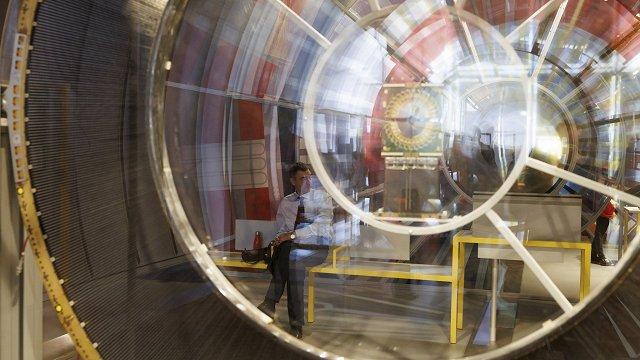The discovery of the God particle has raised new questions for researchers worldwide regarding the role of the Higgs boson in the Big Bang. Alongside particle research at the European Organization for Nuclear Research, or CERN, all aspects are being actively investigated so that researchers can delve even deeper into the history of the universe within this century. A decision on whether to build a 90-kilometer ring beneath Switzerland and France is expected by 2028.
The device, which was meant to answer a series of questions posed by physicists, has not only provided answers but also generated many additional questions. For instance, what is the role of the Higgs boson, or the so-called God particle, in the Big Bang, and what is its role in the evolution of the universe?
It is already clear that with the current CERN technologies, finding answers is not possible due to the need for a greater amount of energy. To address this situation, various studies are actively ongoing, and one of the more realistic scenarios is the creation of a new accelerator, with a planned radius of nearly 90.7 kilometers. The goal is singular: to achieve greater collision energy for particle acceleration.
"The higher the energy density we can create at the collision point, the more massive particles we can produce. Currently, we can generate top quarks, but if there are more massive particles outside our standard model of physics that could explain dark matter in some theories, we cannot reach them because we lack the necessary collision energy. What we want to achieve with greater collision energy is to reach the moment where we can manifest these particles that would help explain various physical phenomena we cannot currently elucidate," explained Kārlis Dreimanis, the leader of the Latvian CMS experiment group.
Currently, CERN is home to researchers not only from Latvia but also around 17,000 researchers from around the world.
At the same time, CERN's leadership is being tested daily, with the greatest competition coming from China and the USA. This was a significant highlight during the recent 70th anniversary celebrations of CERN.
"CERN has become an international platform because it has united Europe. Today, this decision plays a crucial role as we are competing with giants. China has already announced its plans for a collider, intending to build a 100-kilometer ring to test CERN's leadership. I am proud that we have been able to participate in funding research for the future particle accelerator," stated Ursula von der Leyen, President of the European Commission.
The planned hadron collider will not only be an impressive engineering feat, but its costs are currently estimated at around 16 billion euros. Researchers remind us time and again that these costs are minimal compared to the knowledge these experiments could provide to the world. The contributions that such projects offer to entrepreneurs are also significant.
"At the beginning of the 100-kilometer tunnel's construction, a relatively low-energy accelerator will be installed, where electrons and positrons will collide to measure the masses of various particles, which in turn will help better understand the standard model. […] The second phase would be an accelerator where we can collide protons at high energy," noted Markus Seidel, head of the CMS vector boson analysis group.
If the construction of the accelerator begins and everything goes according to plan, researchers hope to start the first phase in the mid-2040s, which will last approximately 15 years. Following that, starting from 2070, a high-energy accelerator is planned to be launched.
It is expected that the data collection process in the second phase will last about 25 years. However, whether the new accelerator and its experiments will be able to answer all the crucial questions, such as how the universe originated, cannot be determined today, as the experiments are still awaiting their start.
Photo and article source: lsm.lv
